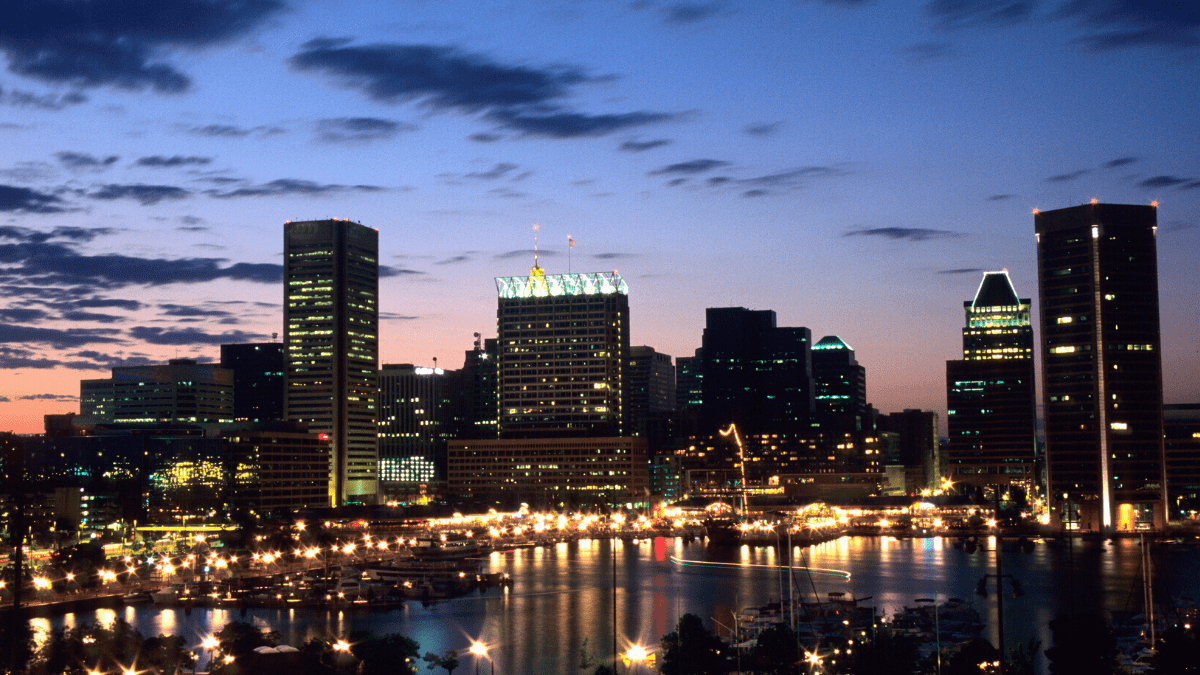
Why Baltimore Has Emerged as the Next
Great City for MedTech
Baltimore, MD is continuing to emerge as one of the next great cities for medtech and medical device innovation. That’s just one of the reasons that Maryland was selected to host MedTech Innovator (MTI) and BioTools Innovator (BTI) for their East Coast pitch events on March 28-30, 2023. MTI and BTI are the largest and highest-performing global pitch competitions and accelerator programs for the life sciences field.




The Maryland Department of Commerce, Office of Life Sciences has worked hard to ensure that Maryland is a destination of choice for medtech companies by making sure that it has the right ecosystem for companies looking to start, build and commercialize successful technologies that can impact the world.
Located in the mid-Atlantic region of the United States, Baltimore is home to a thriving healthcare industry with leading health systems such as Johns Hopkins, University of Maryland Medical Systems, MedStar Health and LifeBridge Health, with a strong tradition of innovation and collaboration in the medtech field. Three major airports in the region also put you within 2 hours of anywhere on the east coast to easily collaborate with other leading hubs and work with even more of the nation’s top hospital systems.
Baltimore’s top-ranked medical research institutions, Johns Hopkins Medicine and the University of Maryland School of Medicine, are two key reasons why Baltimore has continued to thrive as a leading city for medtech innovation. These institutions are home to some of the world’s leading researchers and scientists and are at the forefront of medical innovation.
The foundation for this robust ecosystem has been laid over the past five decades. Covidien, for example, was a leading medical device company founded in the Baltimore area in 1976, specializing in a wide range of medical products, including surgical instruments, wound care products, and medical devices. The company was acquired by Medtronic in 2015, and is now a key part of the world’s largest medical technology company. Becton Dickinson, also known as BD, is a renowned global medical technology company with more than 1,500 employees working in Maryland between their Baltimore County operation and Baltimore City innovation center located at the UM Biopark.
In addition to these established medtech and medical device companies, Baltimore is also home to a number of startups that are working to bring innovative new products to market. Many of these startups are spin-offs from Johns Hopkins or the University of Maryland and are working to commercialize technologies developed at these institutions with the support of a robust and active Baltimore venture ecosystem, including organizations like TEDCO, the Maryland Momentum Fund, the Abell Foundation, Catalio Capital, Ecphora Capital and many others. TEDCO offers several programs for medtech startups at all stages from their MII program, which is focused on supporting tech transfer from local universities, through to the Maryland Venture Fund, which provides growth capital investment to these companies. Check out some of TEDCO’s most recent medtech investments.
According to the Maryland Department of Commerce, the medtech/medical device industry employs more than 40,000 people in the Baltimore region, and generates over $11 billion in annual revenue. This exemplifies Baltimore as a key player in the industry and an ideal location for companies looking to grow and succeed as well as a perfect place to host industry-leading programs such as MTI and BTI.
Medtech Innovation Accelerators
The Baltimore ecosystem includes several accelerators and programs that provide resources and services that help to incubate and commercialize medtech startups. Three leading programs include:
LaunchPort, run by industry veteran Bob Storey, is a medtech manufacturing accelerator that enables medical device start-ups and emerging technology developers to co-locate at an experienced, regulated medical device manufacturing center. LaunchPort is located at the City Garage Science and Technology Park located within the City of Baltimore’s Enterprise Zone and one of the Country’s most exciting urban investment programs: Baltimore Peninsula.
MDC Startup studio works with entrepreneurs, engineers, surgeons, and physicians to move their ideas beyond the lab to create life-changing medtech companies. Johns Hopkins Fast Forward is their university-based startup incubator program which provides a launch to many of Hopkins’ spinout technologies.
Most recently, in 2022 NeuroTech Harbor was founded by Johns Hopkins University and Howard University and recently funded by the NIH to work with innovators and entrepreneurs to accelerate the development of groundbreaking solutions that alleviate human suffering from neurological conditions
Medtech Startups
Dozens of noteworthy medtech startups can be attributed to Baltimore’s universities and innovation ecosystem, including;
Harpoon Medical, a UMB spin-out led by CEO Bill Niland, was purchased by Edwards Lifesciences in 2017 for an initial $100 million, with a total deal value of up to $250 million over the next 10 years. Harpoon and Niland’s notable success represents the quality of technology that is coming out of UMB and the supporting innovation ecosystem in Baltimore that helps these early companies succeed.
Sonavex, which has developed a first-of-its-kind ultrasound technology for blood flow monitoring, the EchoSure & EcoMark systems, puts real-time quantitative data and image monitoring in the hands of surgeons and bedside nurses, wherever they are. The company launched with early funding support from TEDCO, NSF and NIH.
Longeviti is a neuro-technology company with a focus on innovative surgical solutions for complex brain surgeries based on laser technology from Johns Hopkins. Longeviti was launched in 2015 by Co-founder and CEO Jesse Christopher, a veteran industry executive formerly with Fortune 500 medical tech company Stryker Corp. The company received early commercialization support from TEDCO’s MII program and raised $12.6M in 2019 to support its commercial growth. Most recently, Longeviti became one of the most recent companies to relocate their HQ to the City Garage Science and Technology Park, joining other tenants such as the LaunchPort accelerator and a dozen other biomedical companies.
CraniUS, another neuroscience-focused startup, is developing the first medical device that enables chronic medicine delivery directly to the brain through an implantable device that will first be used to treat brain tumors such as glioblastoma. The university spinout, founded by Hopkins professor Chad Gordon and 2021 graduate Deborah Weidman, and, led by CEO Michael Maglin, raised $19.4M in late 2022.
Sisu Global Health, a women-owned medical device company that launched in Baltimore in 2014 has changed the landscape of medical devices in emerging markets. Their early success was supported by the robust Baltimore venture ecosystem, including Johns Hopkins University, Maryland’s TEDCO, the Abell Foundation, BioHealth Innovation and Conscious Venture Labs. Their focus is to create cutting-edge life-saving tools for doctors and patients of the developing world, with their needs in mind. Their first product, Hemafuse, gained regulatory approval in Kenya and Ghana and has been helping to combat the 50-60% donor blood shortage across Africa.
NextStep Robotics has created a solution to treat foot drop. Foot drop seems like a small problem, but it can have a huge impact on a patient’s life. This ailment limits a person’s ability to lift their toe when they walk, causing an abnormal gait which increases their risk of falling. Patients that have suffered from strokes, diabetes, Parkinson’s, or had orthopedic surgery can be affected by this neurological condition.
Xeltis, founded in the Baltimore area in 2006, is a clinical-stage medical device company that has developed a next-generation heart valve that can regenerate itself over time using a patient’s own tissue. The company received early funding from a number of investors, including the Maryland Venture Fund.
This list represents just a small sampling of the many medtech and medical device startups and companies that have emerged and found success in the Baltimore area. These companies demonstrate the continued strength and vitality of the medtech or medical device industry in Baltimore and highlight the many opportunities that exist for companies looking to succeed in this field.
- About the Author
- Latest Posts
Over the past 11 years, Chris has grown BioBuzz into a respected brand that is recognized for its community building, networking events and news stories about the local biotech industry. In addition, he runs a Recruiting and Marketing Agency that helps companies attract top talent through a blended model that combines employer branding and marketing services together with a high powered recruiting solution.








